第49章
Such, then is the character of the Young. The character of Elderly Men-men who are past their prime-may be said to be formed for the most part of elements that are the contrary of all these. They have lived many years; they have often been taken in, and often made mistakes; and life on the whole is a bad business. The result is that they are sure about nothing and under-do everything. They 'think', but they never 'know'; and because of their hesitation they always add a 'possibly'or a 'perhaps', putting everything this way and nothing positively. They are cynical; that is, they tend to put the worse construction on everything. Further, their experience makes them distrustful and therefore suspicious of evil. Consequently they neither love warmly nor hate bitterly, but following the hint of Bias they love as though they will some day hate and hate as though they will some day love. They are small-minded, because they have been humbled by life: their desires are set upon nothing more exalted or unusual than what will help them to keep alive. They are not generous, because money is one of the things they must have, and at the same time their experience has taught them how hard it is to get and how easy to lose. They are cowardly, and are always anticipating danger; unlike that of the young, who are warm-blooded, their temperament is chilly; old age has paved the way for cowardice; fear is, in fact, a form of chill. They love life; and all the more when their last day has come, because the object of all desire is something we have not got, and also because we desire most strongly that which we need most urgently. They are too fond of themselves; this is one form that small-mindedness takes. Because of this, they guide their lives too much by considerations of what is useful and too little by what is noble-for the useful is what is good for oneself, and the noble what is good absolutely. They are not shy, but shameless rather; caring less for what is noble than for what is useful, they feel contempt for what people may think of them. They lack confidence in the future; partly through experience-for most things go wrong, or anyhow turn out worse than one expects; and partly because of their cowardice. They live by memory rather than by hope; for what is left to them of life is but little as compared with the long past; and hope is of the future, memory of the past. This, again, is the cause of their loquacity; they are continually talking of the past, because they enjoy remembering it. Their fits of anger are sudden but feeble. Their sensual passions have either altogether gone or have lost their vigour: consequently they do not feel their passions much, and their actions are inspired less by what they do feel than by the love of gain. Hence men at this time of life are often supposed to have a self-controlled character; the fact is that their passions have slackened, and they are slaves to the love of gain. They guide their lives by reasoning more than by moral feeling; reasoning being directed to utility and moral feeling to moral goodness. If they wrong others, they mean to injure them, not to insult them. Old men may feel pity, as well as young men, but not for the same reason. Young men feel it out of kindness; old men out of weakness, imagining that anything that befalls any one else might easily happen to them, which, as we saw, is a thought that excites pity. Hence they are querulous, and not disposed to jesting or laughter-the love of laughter being the very opposite of querulousness.
Such are the characters of Young Men and Elderly Men. People always think well of speeches adapted to, and reflecting, their own character: and we can now see how to compose our speeches so as to adapt both them and ourselves to our audiences.